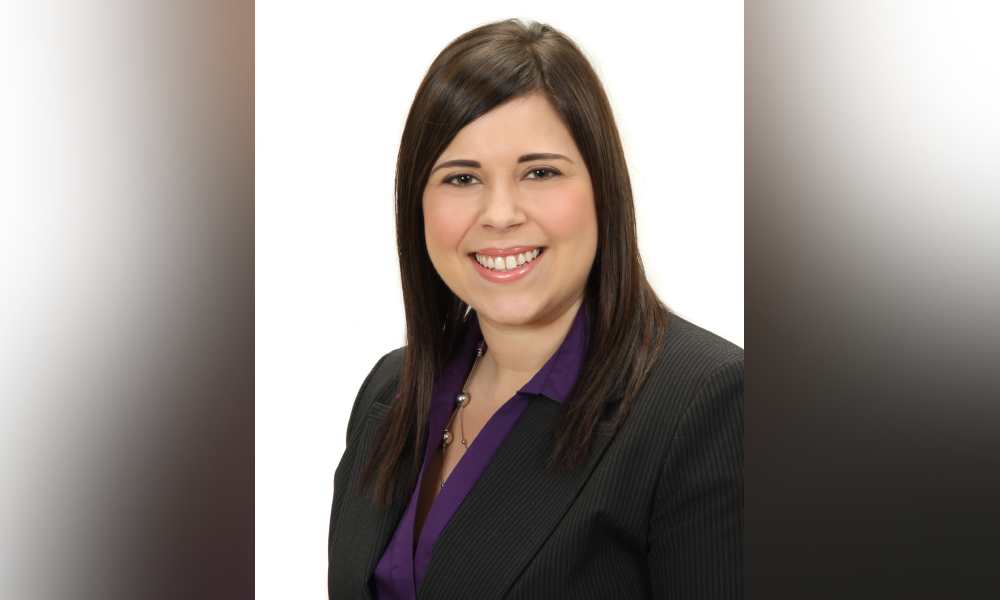Stephanie Power shares her career journey, and how 'matchmaking' can help ensure industry's long-term viability

Growing up, Stephanie Power had a feeling that her mother, an independent financial advisor, always wanted her to take over the practice. But Power had other ideas.
“My plan was to stick to accounting,” the head of Harbour Financial, a co-branded entity of IPC Investment Corporation, recalled. “At school, there wasn’t really a university program to become a financial advisor. But I knew I enjoyed finance, and the accounting profession was so clear-cut and promised an almost guaranteed path to success.”
Power imagined a career path where after working hard in school and proving her competence at finance, she could make it as an accountant. But there was one problem: when she entered the industry, she realized that she couldn’t help clients fully the way she wanted to.
“From behind the scenes of an accounting firm, you don't really get the full picture of a client's situation,” she said. “You're just dealing with the accounting – and in my case, I could only view their tax situation. So I realized I wanted to be more out in front of clients, and have a more flexible ability to talk to them personally.”
That’s when she made the decision to switch careers and become a financial advisor. Power said it was a difficult leap to make, especially since she would be giving up a set salary in exchange for a commission-based occupation, but she was fortunate to have her mother guiding her along the way.
“My mother left a 26-year career at a bank to become an independent advisor, and she had two young kids at the time,” Power said, noting that she made her own career move before having children. “This whole process has just given me a new appreciation and admiration for her.”
She started working for her mother 11 years ago; as a salaried employee, Power had much-needed income security as she cut her teeth and built relationships with the firm’s clients. Since then, the firm has seen excellent growth, and the two have constantly collaborated on high-level planning to ensure the practice’s future strength.
While a lot of financial advisors’ success tends to be outside their control – recent market returns have provided a valuable AUM lift to many books of business – Power said she and her mother tend to focus on factors they can influence more strongly. That includes creating a great experience for clients, adding value to client relationships, and being fully invested in helping them reach their goals.
“We strongly believe those are the factors that will lead to the future growth of our business,” she said. “We’ve been working with Investment Planning Counsel (IPC) to define our service offering and create a systematic and recreatable approach to dealing with clients, which lets us focus on building our relationships as out team executes that system to take care of everyday tasks.”
Beyond planning for growth, the two also worked closely together to ensure a successful handover from mother to daughter. They spent a lot of time ironing out the terms of the deal, and set up a trust structure to allow the business to continue without disruption in case something were to happen to either of them.
When the time to hand over control to Power came last year, they did an estate freeze to lock in the fair market value of her mother’s share in the business, and issued new controlling shares to Power. That approach, Power said, was what they determined to be the most flexible way to pass the baton while also ensuring her mother gets the most tax-optimal consideration for the business as she retires.
Business continuity is also top of mind for the two. “We haven’t stopped collaborating on high-level planning just because the company ownership has changed,” she said, noting that her mother is staying on for a couple of years. “We have a structure in place that allows for my mother or someone else to take over the business in my absence or in an emergency situation.”
Looking further ahead, Power said they are working on setting terms for a potential sale to IPC in case something were to happen to her unexpectedly. That provides a safety net on two fronts: aside from ensuring that her family gets the full value of the business, it helps ensure that her clients are taken care of properly, as opposed to just being endorsed to whoever can take them as the business gets piecemealed out.
By the broad standards of succession planning across the industry, Power believes she and her mother were among the luckier cases. By and large, she said it’s mostly been up to a retiring advisor to come up with their own succession plan and find their own successor, as well as provide the incentives and salary to convince the person to join the business. On a case-by-case basis, some could approach their dealer firm and ask for financial aid to onboard a successor candidate.
Things are improving. Amid a coming wave of advisor retirements and a COVID-inspired industry awakening to business continuity planning, Power said dealers are getting better at designing programs to facilitate the matchmaking between retirees and young advisors. For its part, IPC has long supported advisors with programs and initiatives to help facilitate succession plans.
“For any young person looking to break into the independent advice industry, I would suggest finding an advisor who’s looking to retire in the next three to five years. It’s also important to find someone whose values and planning style align with yours,” Power said. “If done correctly, it can really be a win-win for all parties.”



